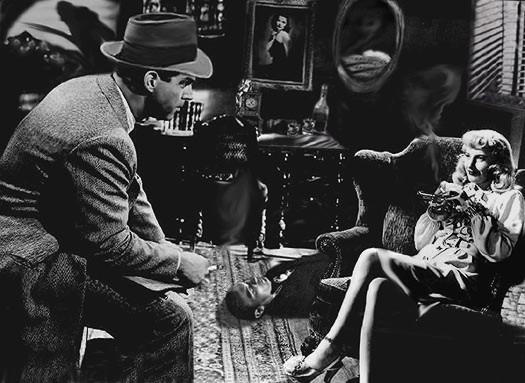
UNDERGROUND (1928) directed by Anthony Asquith, score by Neil Brand, with Timothy Brock conducting the BBC Symphony Orchestra
A stunning romance-comedy-noir-thriller starring above all else the London underground of the late 1920s, this is some extraordinary filmmaking. Light and shadow, German expressionism, Russian montage, Hitchcockian suspense, Chaplinesque humor, and it has one of the best chase sequences ever filmed. So much more entertaining than most films made today. The score was perfection, full of fabulous themes and wonderful surprises, the timing and flexibility of the orchestra conducted by the amazing Timothy Brock quite simply unbelievable. The film, beautifully restored by the BFI, was dismissed by reviewers when first released. If the packed and enthusiastic audience at the Barbican has anything to say about it, this print and score will surely set the record straight.

The screening at the Barbican was followed by a riveting Q&A with Brock, Brand, Robin Baker (Head Curator, BFI National Archive), Matthew Sweet (Writer, Historian and Broadcaster), and chaired by Francine Stock (TV/Radio presenter and novelist.) Wonderful stuff was revealed like how the harmonica sequence had to be played by a melodeon, how Asquith introduced the helicopter shot before the helicopter, and how David Thomson, according to Sweet, very wrongfully dismisses Asquith in his Biographical Dictionary of Film. (I subsequently read the entry--Underground isn't mentioned--and he does seem unreasonably nasty about Asquith, but we love David Thomson precisely because he can be so viciously wrong.) But what I appreciated most was the sheer love of film and music eminating off the Barbican stage from all of the speakers, most especially Neil Brand. I missed his score for Hitchcock's Blackmail which I understand was another triumph. Now in October in New York he will be conducting the New York Philharmonic in his restored score of The Gold Rush. If you happen to be in the big apple then go, go, go.
In the meantime, here's almost two minutes of that chase scene I mentioned from Underground. This is from the rooftop of the Lot's Road Power Station which is still there in romantic semi-ruins right down the road from where I live in London.
DR. JEKYLL AND MR. HYDE (1920) starring John Barrymore, directed by John Robertson, screenplay by Clara Beranger, live score written and performed by Blue Roses

It was raining, we were late, we were riding Boris bikes across Hyde Park and couldn't find anywhere to return them. We finally arrived at the Electric Cinema in Notting Hill to see Dr. Jekyll and Mr. Hyde, myself resembling in look and mood the latter. But settling into the plush red leather seats with a glass of red wine to warm us up, we were fast restored by this wild evening to our better selves. The very creepy, scary, weird film in which John Barrymore very impressively becomes a hideous, hairy, distorted version of himself, was accompanied by an equally macabre and intriguing score played and orchestrated by Blue Roses. There have been too-many-to-count film versions of this Robert Louis Stevenson story about our dark double-nature, but this one is the original and fascinating to watch. It was written by Clara Beranger, who would go on to have a very successful Hollywood career scripting over 70 movies.

This screening of Dr. Jekyll and Mr. Hyde was part of the wonderful BIRD'S EYE VIEW FILM FESTIVAL's Sound & Silents strand which presents classic silent films by pioneering women filmmakers alongside specially commissioned scores by cutting-edge contemporary female musicians.
Upcoming from Bird's Eye View Sound & Silents: British Composer Mira Calix rescores early animation The Adventures of Prince Ahmed at the Aubin Cinema, Shoreditch, on Sunday 23 October. (www.birds-eye-view.co.uk)
THE LIGHT OF ASIA (1925) directed by Franz Osten & Himansu Rai, written by Niranjan Pal with New Live Score By Pandit Vishwa Prakash

I had seen Franz Osten's amazing A Throw of the Dice at a screening in Trafalgar Square about a year ago so when I heard the BFI was showing The Light of Asia I quickly bought tickets. After an overlong introduction to the film (the occasion was actually a celebration of the filmmaker Niranjan Pal who went on to found with Osten and Rai the movie studio The Bombay Talkies Limited) the movie was finally screened. The film recounts the saga of Prince Siddhartha, who rejects his privileged life to search for Truth and becomes Buddha, or the Enlightened One. The story was just not as compelling as A Throw of the Dice based on the episode from "The Mahabharata" chronicling a harrowing love triangle. Still, they both shared the incredible Rajasthan settings, the erotic and exotic costumes, the jungles and palaces, elephants, camels, and tigers. Orientalism abounds but so does breathtaking beauty and astonishing filmmaking. The meticulous attention to lighting and patterning of Weimar cinema here meets the fantastical tradition of Indian storytelling. And the Prakash score was sublime.

A THROW OF THE DICE (1929) directed by Franz Osten
I know of two more silent film events upcoming in London which I will sadly have to miss but they promise to be great, great evenings.
THE FIRST BORN directed by Miles Mander with a live performance of Stephen Horne's new score at Southbank's Queen Elizabeth Hall on Thursday, Oct 20 at 19:30. (bfi.org.uk/lff)
THE PASSION OF JOAN OF ARC directed by Carl Dreyer (and one of the all time great silent films) with music from the London Symphony Orchestra on November 6 at 19:30. (Iso.co.uk)


No comments:
Post a Comment